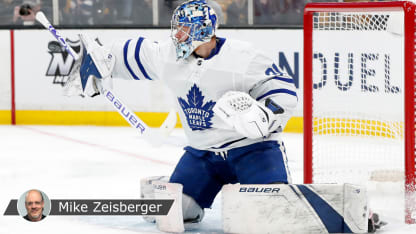Those words are music to the ears of Toronto coach Mike Babcock, whose belief in his No. 1 goalie never wavered throughout Andersen's struggles down the stretch. The veteran won three games and had an .881 save percentage in his final 10 games of the regular season and appeared to be entering the playoffs on a low note.
Through it all, Babcock maintained that Andersen would regain his form once the postseason arrived. One game does not a series make, but Andersen certainly is trending in the right direction.
"I think with all of us we go through some adversity in our life," Babcock said. "What you do is try to dig in to make it as short as possible. Everybody likes feeling good in everything you do. That's life. You want your ups to be longer than your downs. So if you dig in, you dig in every day, you don't end up with downs that long.
"Freddy is a guy we trust, Freddy's a guy who's a real leader on our team, who works hard and who is proud of what he does and who obviously wanted to get his game back. He did (in Game 1)."
With a little help from his friends in blue and white, of course.
Expect the Maple Leafs defense in Game 2 to try to continue boxing out Bruins forwards in front of Andersen and force them to the perimeter, a recipe that worked successfully in the opener. Particularly successful were defensemen Jake Muzzin and Nikita Zaitsev, who spent a good chunk of Game 1 limiting the chances of Boston's top line of Marchard, Bergeron and David Pastrnak.
"You need to play them hard, limit their time and space, like you have to against most top lines in the League," Muzzin said. "I thought we did a good job tracking them. I didn't find there was a lot of rush chances from them. But the key was that Freddie made the saves."

